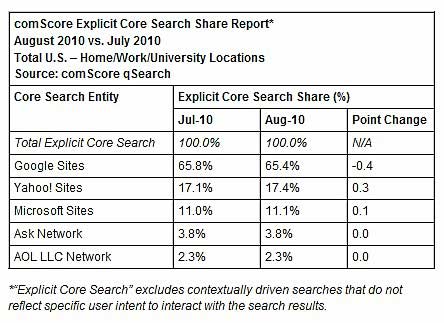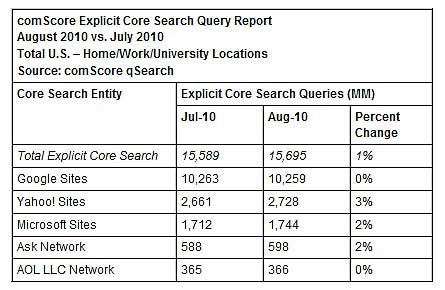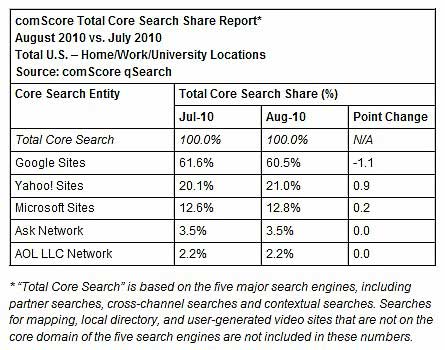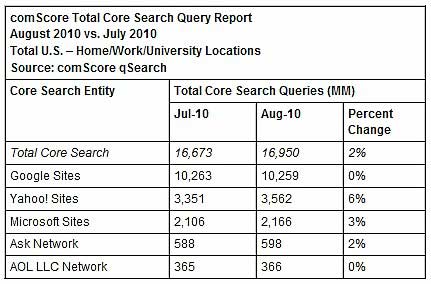Google Sites led the US explicit core search* market in August 2010, accounting for 65.4% of total searches conducted during the month, down 0.4 percentage points from July, according to data from comScore qSearch.
Yahoo Sites was second with 17.4% of explicit core searches (up 0.3 points from the previous month), followed by Microsoft Sites with 11.1% (up 0.1 points), Ask with 3.8%, and AOL with 2.3%.

Total Core Search Queries
Nearly 15.7 billion explicit core searches were conducted in August, up 1% from July. Google Sites ranked first with 10.3 billion searches, followed by Yahoo Sites with 2.7 billion (up 3%) and Microsoft Sites with 1.7 billion (up 2%). Ask accounted for 598 million explicit core searches (up 2%) followed by AOL with 366 million.

Total Core Search
Google Sites accounted for 60.5% of total core search queries conducted in August, followed by Yahoo Sites with 21.0% and Microsoft Sites with 12.8%. Ask captured 3.5% of total search queries, followed by AOL with 2.2%.

Looking for great digital marketing data? MarketingProfs reviewed hundreds of research sources to create our most recent Digital Marketing Factbook (May 2010), a 296-page compilation of data and 254 charts, covering email marketing, social media, search engine marketing, e-commerce, and mobile marketing. Also check out The State of Social Media Marketing, a 240-page original research report from MarketingProfs.
Americans conducted more than 16.9 billion total core search queries in August. Google Sites led with 10.3 billion searches, followed by Yahoo Sites with 3.6 billion and Microsoft Sites with 2.2 billion.

* Explicit core search is defined by comScore as user engagement with a search service with the intent to retrieve search results.
Note: comScore's ability to report qSearch data for September 2010 will not be impacted by recent changes in the search landscape, including the introduction of Google Instant Search and Microsoft's powering of specific channels of search activity within Yahoo. Google's introduction of Instant Search does not disrupt comScore's ability to measure search activity consistently, but does introduce a new dynamic that will be addressed in comScore's data collection methodology.



